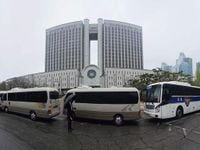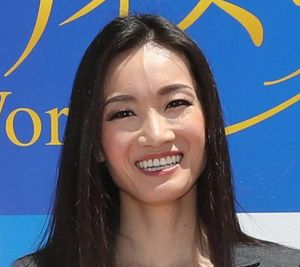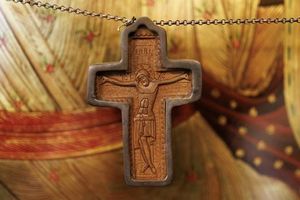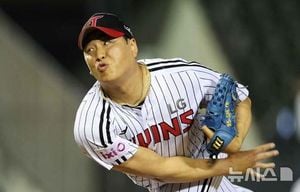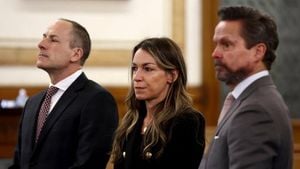Former South Korean President Yoon Suk-yeol faced a court in Seoul on April 15, 2025, to begin his trial on charges of treason and rebellion, stemming from his brief declaration of martial law during a budget dispute last December. Yoon, who arrived at the Seoul Central District Court under heavy security and through an underground parking lot to avoid public attention, denied all charges against him.
As the session commenced, prosecutors presented their case, accusing Yoon of lacking a legal basis for his martial law announcement and attempting to undermine state institutions such as the parliament. The judge referred to Yoon as the "former president" and asked for his personal information, including his name and birthdate.
During the proceedings, Yoon, who previously served as a public prosecutor, spent approximately 40 minutes refuting the allegations. He stated, "An event that was safe and did not involve bribes occurred, yet I am being accused... it appears to me that there is no legal basis for it." His defense team requested the court to display the prosecutor's opening statement on a screen, allowing Yoon to counter it point by point.
The prosecution argued that Yoon "planned to infringe on the constitution in order to weaken the democratic system," presenting evidence that included prior planning for the martial law and orders to deploy military forces within the parliament. The court is expected to hear testimonies from two military officers, one of whom alleged receiving instructions to forcibly remove legislators from the national assembly during Yoon's martial law declaration.
Political turmoil has engulfed South Korea following Yoon's failed attempt to impose martial law on December 3-4, 2024. This led to his impeachment by the parliament and subsequent accusations of rebellion, culminating in a warrant for his arrest. Yoon was arrested on January 15, 2025, but was released on March 8 after a court overturned the arrest warrant.
As the trial proceeds, experts predict it will be lengthy, with the first verdict potentially issued in August or September. The case involves around 70,000 pages of evidence and numerous witnesses. Lawyer Min Kyung-sik noted, "If the court sees necessity, it may extend the trial," recalling the case of former President Park Geun-hye, who was ousted in 2016 but whose final verdict on corruption charges was not issued until January 2021.
If convicted, Yoon could become the third South Korean president to be found guilty of treason, following two military leaders involved in a coup in 1979. Legal experts suggest that the precedent of the coup may apply to Yoon's case due to the military's excessive use of force. In the event of a conviction, Yoon could face severe penalties, including life imprisonment or even execution, although the latter is unlikely given South Korea's unofficial moratorium on the death penalty since 1997.
As the political landscape in South Korea shifts, questions remain about the future of Yoon and the implications of his trial on the country's governance. The nation is set to hold early elections on June 3, 2025, raising further uncertainty about the political ramifications of Yoon's actions and the ongoing legal proceedings against him.
